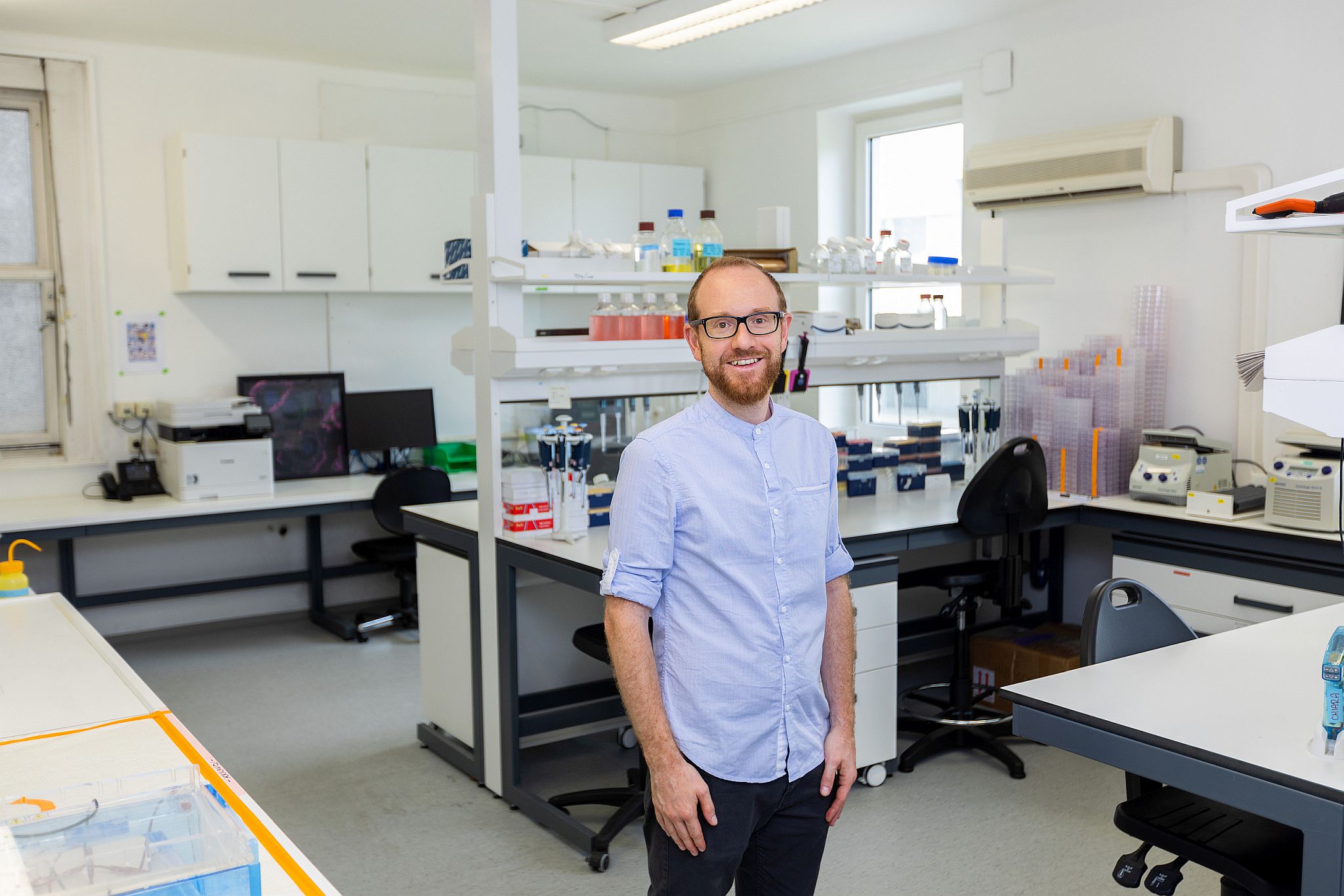ERROR: Content Element with uid "134982" and type "mask_languagenote" has no rendering definition!
by Iros Barozzi
Photos by: MedUni Wien/feelimage
Have you ever wondered how our bodies defend against infections without attacking themselves? It's a fascinating puzzle that my research group and I are trying to solve at MedUni Vienna by diving deep into the realm of genomes and genes, to understand how our immune system works.
The Mystery of Immune Activation
When our body faces a threat like a virus, certain genes need to turn on to fight it off. But here's the catch: these genes must only activate when there's a real danger. If they turn on by mistake, it could lead to problems like autoimmune diseases, where the body attacks itself. How does our body manage to control this so precisely? If you’re curious to investigate this, this project can be a good fit for you!
How We'll Solve the Puzzle
At the heart of the project lies a fusion of cutting-edge genomics and computational methodologies. By generating and analyzing single-cell, multi-omics datasets from macrophages and integrating them with existing transcriptomic and epigenomic profiles, we aim to tackle some unresolved questions of immune regulation. Employing innovative machine learning algorithms and computational frameworks, we seek to predict transcriptional heterogeneity at the molecular level, shedding light on the elusive mechanisms that underpin immune function. By combining all these methods, we hope to uncover the secrets behind how our body keeps immune genes in check.
What You'll Do
If you join this project, you'll be right in the thick of it! Your job will be to help collect and analyze data from different cells in our immune system. You'll use and develop computer programs to sort through all the information and look for clues that could explain how our genes stay quiet until they're needed.
Why It Matters
Understanding how our immune system works is not just fascinating - it's also important for keeping people healthy. If we can figure out how to stop immune genes from activating when they shouldn't, we could help prevent diseases like lupus or rheumatoid arthritis. This research work holds promise for both scientific understanding and clinical application. By shedding light on the mechanisms that govern immune gene expression, they pave the way for new therapeutic strategies and interventions for immune-related disorders. Plus, the results of this project could teach us a lot about how our bodies work in general, which is awesome!

"Understanding how our immune system works is not just fascinating - it's also important for keeping people healthy."
The SHIELD PhD Program
Central to this endeavor is the SHIELD program: "Securing Host Immunity: Elimination versus Destruction." Funded by the Austrian Science Fund (FWF), this visionary initiative unites eleven esteemed faculty members from the Medical University of Vienna and the University of Veterinary Medicine Vienna. With a collective focus on pathogen and tumor elimination, cellular and molecular mechanisms, and autoimmunity, the program fosters interdisciplinary collaboration and cross-disciplinary training. By nurturing synergistic partnerships and providing students with comprehensive mentorship, SHIELD empowers the next generation of researchers to push the boundaries of immunology.
Join the Journey
If you're a curious and passionate student looking to make a difference in the world of science, this project might be perfect for you! Who knows? Together, we might just discover something that changes the way we think about health and disease. My lab is participating with this interesting PhD project in the current PhD call. Apply now if you are interested to unravel the mysteries of immunity and join the SHIELD PhD program.
This science is funded by the Austrian Science Fund (FWF)
ERROR: Content Element with uid "201339" and type "mask_partners" has no rendering definition!
